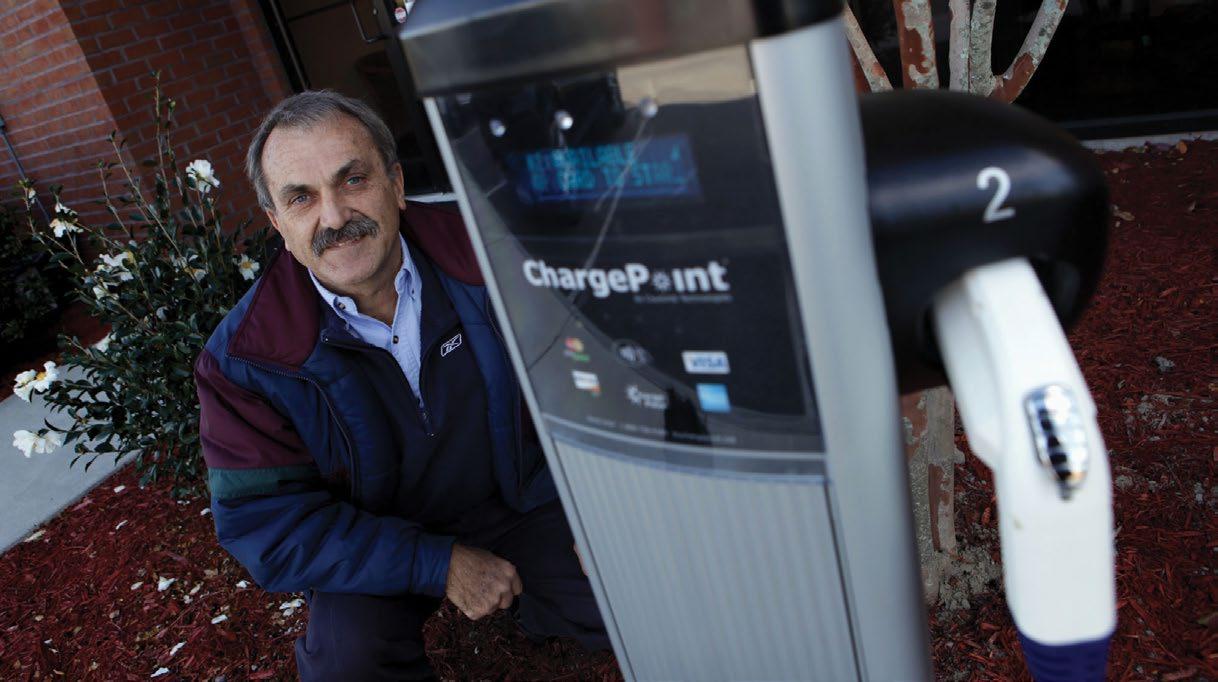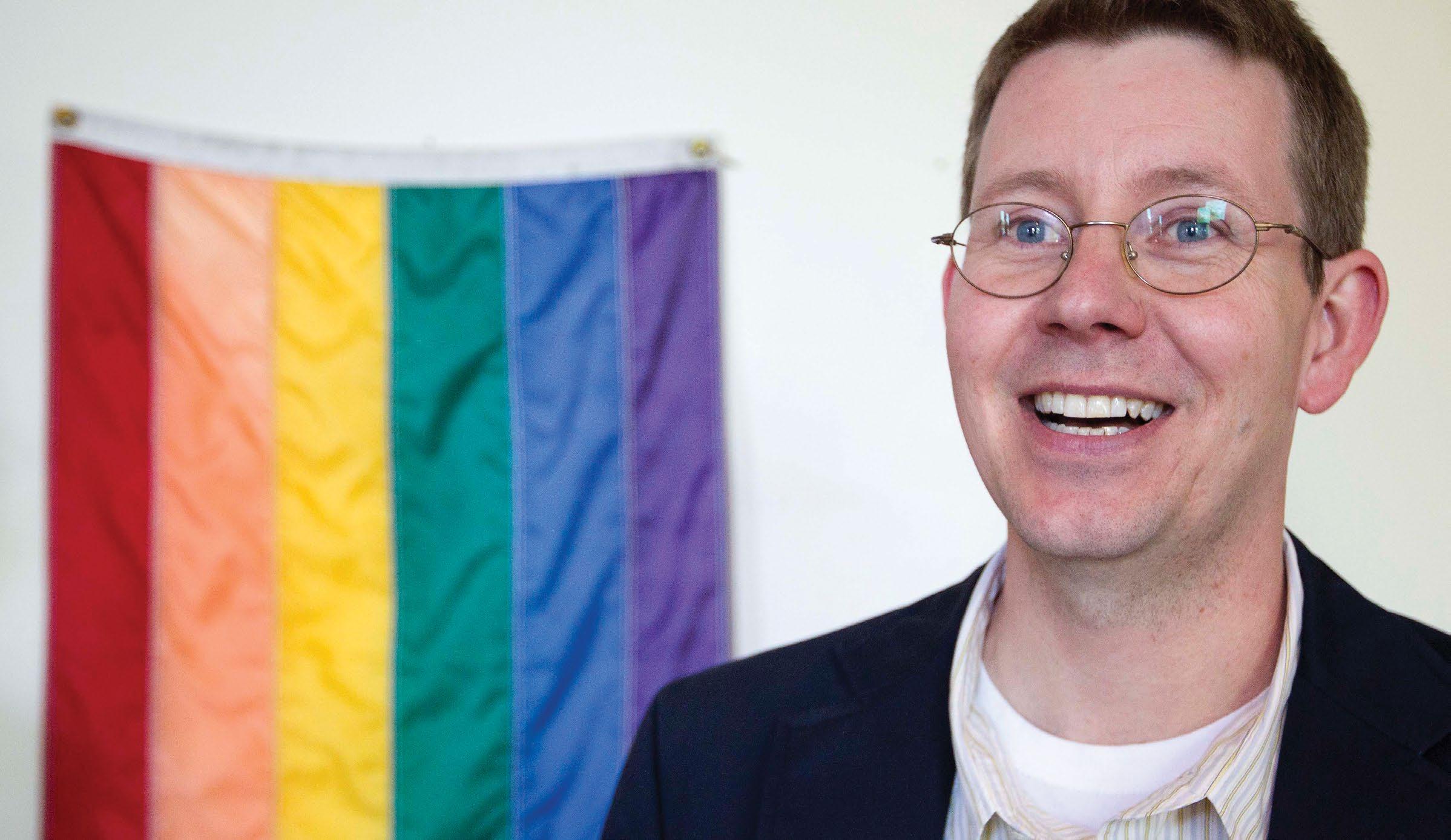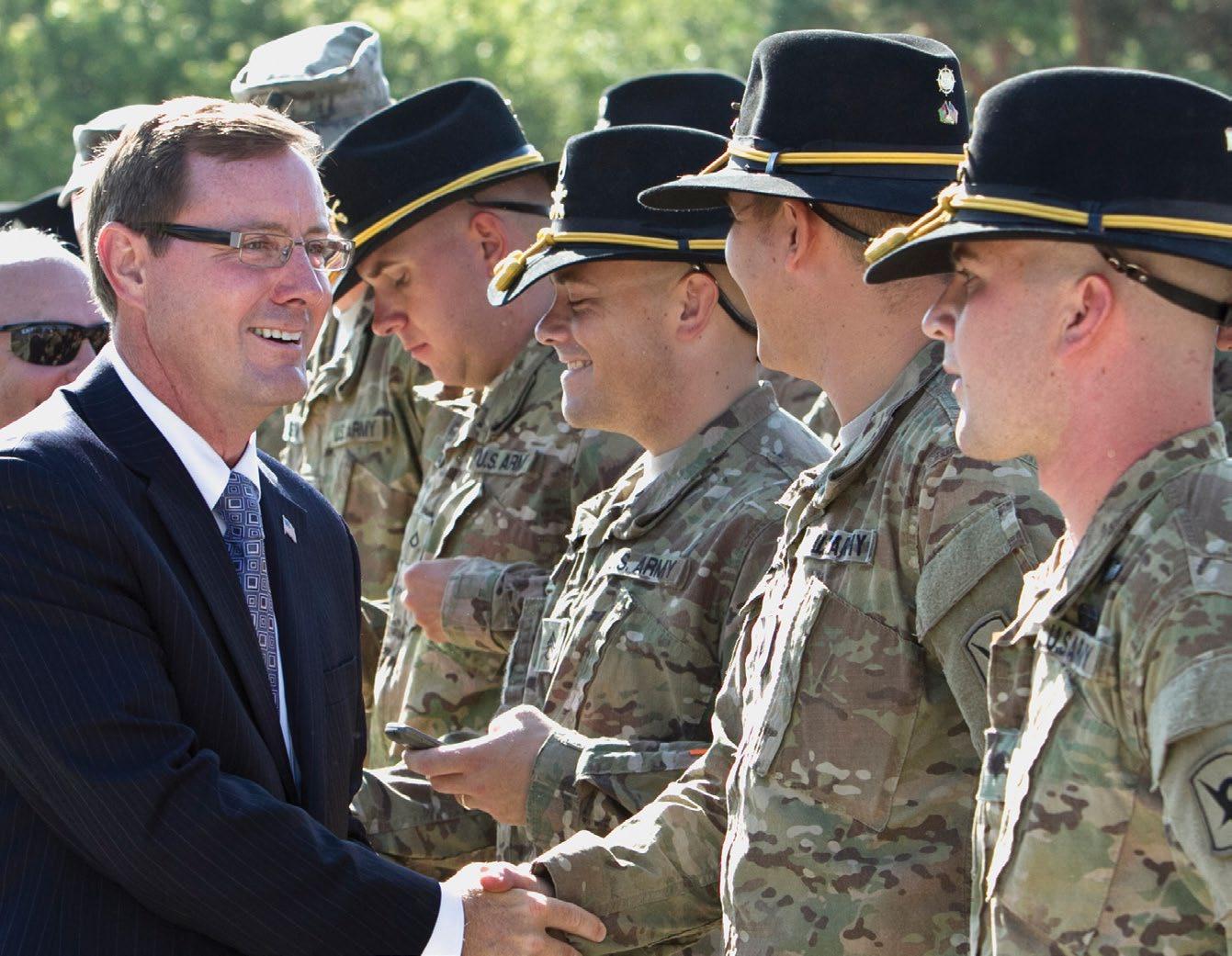
7 minute read
INNOVATIVE LEGISLATION
STATES FIND WAYS TO TACKLE NEW, AND OLD, PROBLEMS
by Jennifer Ginn
If states are indeed the laboratories of democracy, a few of them seem to have spent some extra time in the lab during the 2012 legislative session. Here are a few of the innovative ways policymakers found to tackle issues in their state.
VIRGINIA Putting Veterans to Work

Virginia is making it easier for military veterans to put their experience to work and gain a commercial driver’s license. House Bill 194 established the Troops to Trucks program, which waives the road skills test for people who have a military commercial license and offers training for those who need it at two military bases. Virginia also is now the only state offering federal evaluations that will allow drivers with missing or impaired limbs to be commercially licensed.
KENTUCKY New School Choice
Kentucky legislators created a new kind of charter
TEXAS Credit Where Credit is Due
Texas Sen. Leticia Van de Putte said the Lone Star state has about 1.85 million veterans living within its borders. Among veterans of the Iraq and Afghanistan wars nationally, she said, the unemployment rate is twice as high as among the regular civilian workforce.
The key to getting more veterans into jobs, she said, is education. But in Texas, many veterans had problems getting college credit for the training they received in the military. Her Senate Bill 1736 created the College Credit for Heroes program. Texas higher education institutions will work together to create a better and more consistent way to give veterans college credit for their military training.
“The best economic generator … is someone with a college degree,” Van de Putte said.
Their military training could help speed a veteran’s path toward a two-year associate degree, a four-year degree or technical certification, she said. requires newborns to get a test that measures the oxygen level in their blood. Since the bill’s
“These military war fighters get just excellent, wonderful training and it was not translating into college credit. … It helps them graduate faster; you’re not wasting their time.”
Van de Putte said veterans will most often get credit for training in subjects such as nutrition, health and logistics. One active-duty Marine, she said, thanked her because through the program, he won’t have to take a mandatory year of physical education.
CALIFORNIA Keeping Parks Open
California is once again facing a huge budget crisis, with a looming budget shortfall of nearly $16 billion this year. The Department of Parks and Recreation is looking at a $22 million budget cut, which will force the closing of up to 70 state parks. Assembly Bill 42 allows qualified nonprofits to develop, improve, maintain or operate a
school with House Bill 37, which gives the state Board of Education authority to create a “school of innovation” or a “district of innovation” if 70 percent of school or district employees approve. The schools or districts will be able to do many things not allowed under current regulations, such as extended school days or years, alternative education programs during nontraditional hours and a virtual school within the district.
NEW JERSEY Newborn Heart Screening

All babies born in New Jersey now will undergo an inexpensive, noninvasive test that could identify up to 100 more potentially deadly heart defects each year. Bill A-3744 park. Some legislators hope the bill will keep a few of the parks now on the closure list open.
adoption, U.S. Secretary of Health and Human Services Kathleen Sebelius added the test to a list of nearly 60 recommended screenings for newborns nationally.
OHIO Investing Close to Home


Ohio legislators gave local governments the option of keeping their money close to home with House Bill 209, which paved the way for the STAR Plus program. Local governments can deposit their cash into a state-managed account, which invests that money in banks across Ohio. Funds are kept below the $250,000 threshold for federal insurance to help ensure the account’s safety. The program also is a win for Ohio communities, which should have easier access to business loans when banks reinvest those deposits into their communities. MARYLAND Child Identity Theft
Maryland legislators gave parents a new tool to protect their child’s identity with House Bill 555, which allows parents to create a credit report for their child and then immediately put a security freeze on it. The security freeze will keep any consumer reporting agency from releasing a locked report or any information on the report without consent. This would keep creditors from establishing any credit lines in the child’s name.
VIRGINIA Electric Vehicles

Virginia Delegate David Bulova said sometimes government has to get out of the way.
A Virginia law allowed only public utilities to charge for electricity that was to be used for transportation purposes. A business could install a charging station for electric vehicles, but they couldn’t charge customers for the power. House Bill 2105, sponsored by Bulova, eliminated that law and now will allow businesses to sell electricity. It also allowed the State Corporation Commission to conduct a pilot program to encourage people to recharge their vehicles in off-peak hours.
“The thing is, this was kind of a hard lesson we learned with natural gas vehicles,” Bulova said. “It wasn’t that the technology wasn’t great and it wasn’t that it wasn’t good for the environment and it wasn’t that it (natural gas) wasn’t a domestic resource. The infrastructure wasn’t there. You couldn’t charge up with natural gas. I don’t think we wanted to make that mistake again with electric vehicles.”
Bulova said the legislation was a win for the environment, for entrepreneurs who can now open up charging stations and even for national security by reducing the need for imported oil.
“I’m also a really big believer that technology is our friend,” he said. “It’s not only worthwhile, but necessary, we invest in technology, innovation and those resources to help solve a lot of issues we’re facing today. I think technology, in many ways, helps to create win-win situations.”
CHARGE ACCOUNT
VIRGINIA BEACH, VA.—Richard Good, president of Solar Services, opened the first electric car charging station in Virginia. Businesses in the state can now sell electricity for transportation use. © AP Photo/The Virginian-Pilot, Vicki Cronis-Nohe NEVADA Look Ma, No Driver! Assembly Bill 511 in Nevada, which took effect in March, is the first bill in the country to allow autonomous cars on the road. Google has been at the forefront of developing self-driving cars, which use video cameras, radar sensors, lasers and maps to drive cars automatically. In late May, the California Senate approved similar legislation. A Detroit News article said if driverless cars become popular, states will need to re-examine laws governing drunken driving and driver’s licensing.

SOLAR POWER
CARSON CITY, NEV.—Nevada Gov. Brian Sandoval described taking a spin in a driverless car in 2011 as “amazing.” © AP Photo/Sandra Chereb
MARYLAND Innovate Maryland Although Maryland ranks high on new technology, research and innovation coming from its universities, it has one problem—turning that research into commercial products.
“Because as Marylanders, with the assets we have, we should not be satisfied with being number one in research and being 20th in innovation and commercialization,” Gov. Martin O’Malley said in a speech in Baltimore in April. “We should be number one in both.”
That’s where House Bill 422, which created the Maryland Innovation Initiative, comes in.
The state will contribute $5 million in funding and five research universities will contribute up to $200,000 annually to participate. The money will be used to help researchers assess the viability of their technology, define and exploit potential markets, identify funding sources and develop commercialization strategies.
The initiative’s goal is to transfer 40 technologies from research into production every year.
“The better future that we seek will dawn first here in our state, if we choose to make it so,” O’Malley said. “But the future’s not a gift—it’s an achievement.”











